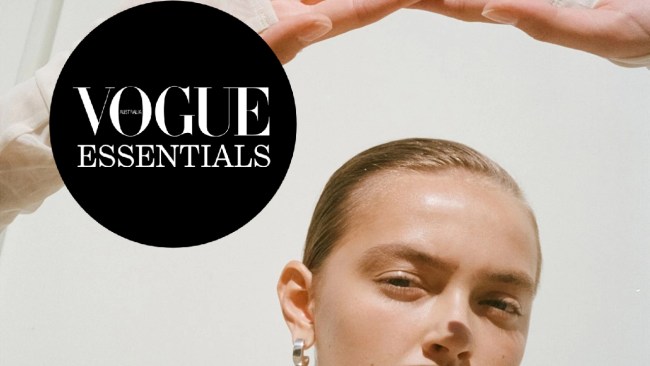Is "Phonewalling" the new "Phubbing"? Lessons on phone etiquette in romantic relationships
If we’re going to start calling it out, we may as well not get the ick from ourselves when we do.

Fashion
Don't miss out on the headlines from Fashion. Followed categories will be added to My News.
If we’re going to start calling it out, we may as well not get the ick from ourselves when we do.
It doesn’t take an expert to know that the more time we spend fixated on our phones, especially while in the company of others, the more our relationships suffer. The act—that being, using your phone while in the company of others, especially while engaging in activities that would generally foster intimacy and connection—is most commonly known as “phubbing”.
If you haven’t heard of it, it’s probably because it was coined by an advertising agency in 2012 to promote a dictionary of Australian English, and, despite recently trending online, it has gone for most of its existence without gaining much traction in our internet vernacular. This is likely due to the fact that “phubbing” (a combination of “phone” and “snubbing”) wasn’t a widespread issue back in 2012, however, as the decade has passed, our tendencies to lean on our smartphones for a sense of social security and digital connectivity have increased ten-fold, leaving many of us feeling more disconnected from our real-life relationships than our online ones.
Phone etiquette has long been a point of contention for smartphone users. When almost everything is accessible through our screens, where do we draw the line with what we want to access in the real world? In 2023, it is safe to assume that phubbing puts our real-life relationships at stake in a very real way. When we reach a point where we are no longer able to manage our phone use while in the company of our loved ones, how can we expect our intimate relationships to stay alive?
This is a question more and more of us are asking ourselves as we experience firsthand frustration when our partners, friends, or family members pick up their phones while we’re having a conversation with them, scroll mindlessly while watching TV, check their emails before saying good morning or walking around the streets, and in severe cases, look at notifications while being intimate with their partners.
While the detrimental effects of phubbing are not exclusive to couples, our romantic relationships are often hit the hardest, relationship and sex therapist Selina Nguyen says. “It's not just the physical act of picking up your phone that’s inherently problematic for couples,” She tells us, “but also distractions like work, social media, and messaging other people that can be hard on relationships and trying to feel connected to your partner.”
Oftentimes, we think we are better at multitasking than we actually are. How many times have we told our partners we were listening, while we turned our attention towards a slightly concerning email from our managers illuminating our screens, and then apologised because we didn’t actually hear what they felt like for dinner? “A lot of the neuroscience is saying that multitasking doesn’t really work because we end up spending more energy on switching between tasks and as a result, we end up with less work being done and to a poorer quality.” Nguyen says. “This impacts our relationships because we think we’re listening and we think we’re engaged in the conversation, but we’re really missing so much of what’s in front of us and this accumulates in our relationships.”
It all makes sense; the bids for connection; the risks associated with being less present with your significant other; the looming fear that we have all “phubbed” someone or been “phubbed”. But how can we extract ourselves from a rut that it feels like almost everyone is in, especially when feelings are involved?
“If you’re feeling disconnected, it’s important to have a conversation about it with your partner and let them know what you’ve noticed and how it impacts you.” Nguyen advises. “It’s also important to emphasise that it’s not intended as a critique but as an attempt for reconnection.
From there, it can be great to make a game plan together about being intentional about your phone use as well as your quality time together. For many couples it’s useful to create rules or challenges around no screens at meals, date nights or before bed and this can do wonders for your relationship and your intimacy."
Not to circle back to the woes and throes of capitalism, but in an era where we are all balancing the weight of job stability, keeping households afloat, battling against a cost of living crisis, and maintaining our relationships, zoning out with our phones can sometimes feel like the only reprieve, which is exactly why it can feel so high stakes in our romantic partnerships. Many of us are conscious of the ways in which overuse of smartphones can impact our personal mental health and ability to be productive, so why wouldn’t our relationships be affected in turn?
“I use a concept by John and Julie Gottman who are well-known relationship therapists and researchers and it’s the concept of bids for connection. Bids for connection are essentially an attempt to connect with your partner and this can look like anything from asking them how their day was to telling them a story to making them dinner.” Nguyen adds. “Relationships are built and maintained through these little interactions. So when we make a bid for connection, it’s on the other partner to accept, reject or ignore the bid and of course, we want our partners to accept the bid so we can feel closer and connected to them. But when they choose to reject or ignore the bid or in this case, phub us, it leaves us feeling ignored and over time, it can become a breeding ground for resentment and miscommunication.”
The only problem with the concept of “phubbing” is its name. While pitching this story, I found myself feeling a little…weird saying the word over and over again, and I wasn’t alone. Cringe hung in the air as I discussed the topic with both coworkers and friends, like I was bringing up a topic that was NSFW. To remedy this, we’d like to suggest, courtesy of GQ’s digital editor, Charlie Calver, “phonewalling” as an alternative. “Are you phonewalling me right now?” feels like a far more digestible accusation to use over drinks than “can you stop phubbing me?”
If we’re going to start calling it out, we may as well not get the ick from ourselves when we do.
Originally published as Is "Phonewalling" the new "Phubbing"? Lessons on phone etiquette in romantic relationships






